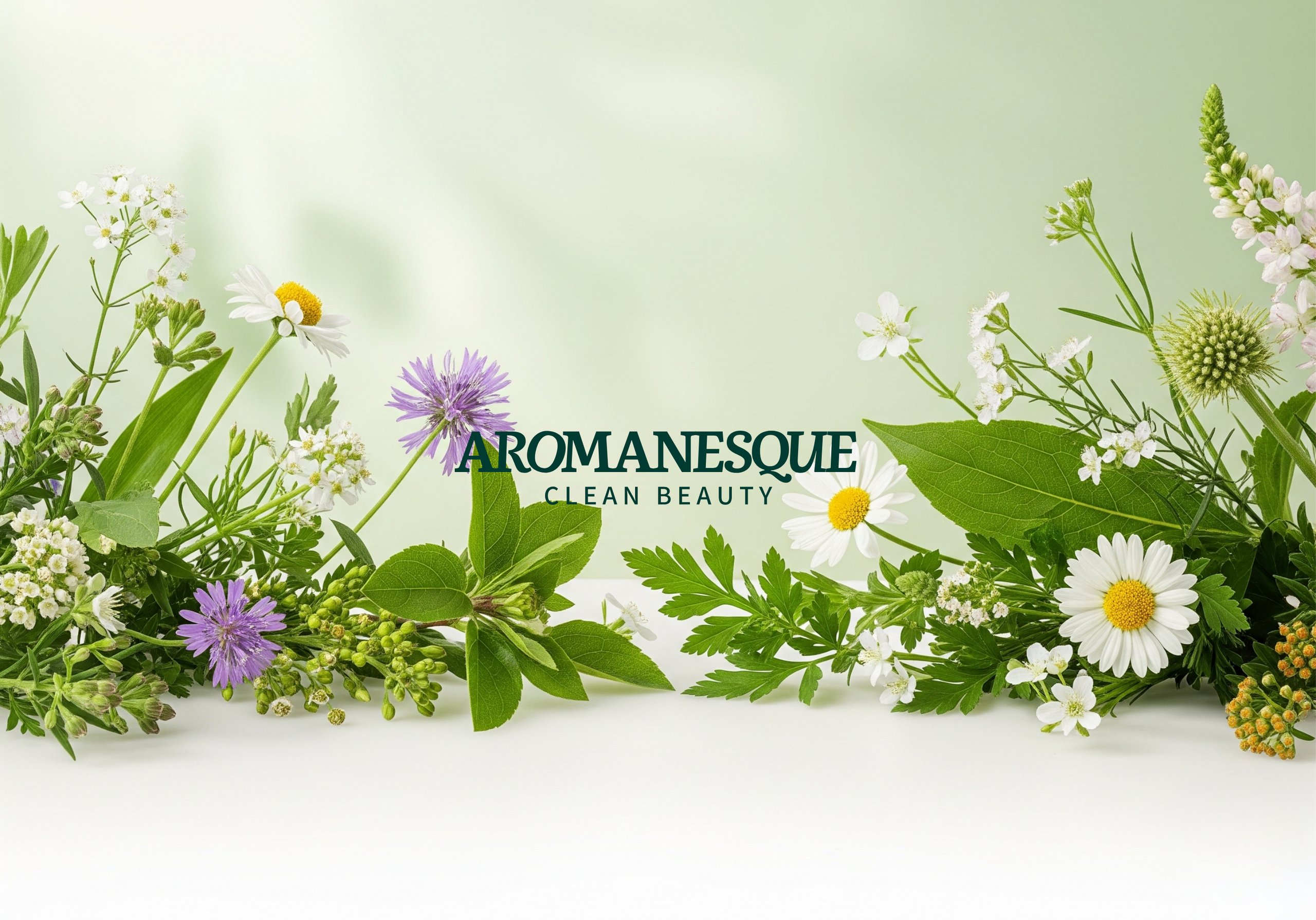Seien wir ehrlich: Als Gesellschaft sind wir süchtig nach endlosen Hautpflegeprodukten, die strahlende, erwachte, zeitlose Haut versprechen. Aber haben Sie jemals versucht, tiefer in die Inhaltsstoffe dieser Feuchtigkeitscreme oder Gesichtsreinigung einzutauchen, der Sie blind vertrauen? Unsere Haut verhält sich wie ein Schwamm und absorbiert mehr als 60 % dessen, was wir topisch auftragen. Daher ist es wichtig, Produkte mit hochwertigen, sicheren Komponenten zu verwenden. Wir werden in diesem Artikel diskutieren, warum natürliche und biologische Hautpflege ein Muss in Ihrer Routine ist.
Vorteile natürlicher und organischer Hautpflege
Natürliche und biologische Hautpflegeprodukte sind frei von schädlichen Chemikalien, synthetischen Duftstoffen und künstlichen Farbstoffen und bieten eine sauberere und sicherere Option für Ihre Haut.
- Nährstoffe : Reich an essentiellen Fettsäuren, Vitaminen, Antioxidantien und Mineralstoffen können natürliche und organische Inhaltsstoffe Ihre Haut mit den notwendigen Nährstoffen versorgen, die sie braucht, um gesund zu bleiben und ihr ideales Gleichgewicht zu bewahren.
- Umweltfreundlich : Der Wechsel zu natürlicher und biologischer Hautpflege reduziert Ihren ökologischen Fußabdruck und verringert die Anzahl der Chemikalien, die in unsere Umwelt freigesetzt werden.
- Tierversuchsfrei : Viele Natur- und Bio-Hautpflegemarken verpflichten sich, tierversuchsfreie Produkte anzubieten und sicherzustellen, dass während des Produktionsprozesses keine Tiere geschädigt werden.
Die Verschiebung der Verbraucherpräferenzen
Da die Verbraucher sich der Auswirkungen ihrer Hautpflege bewusster werden, hat sich eine deutliche Verschiebung hin zu natürlichen und biologischen Optionen vollzogen. Die steigende Nachfrage nach Transparenz und saubereren, sichereren Produkten hat zu einer größeren Vielfalt an natürlichen und biologischen Angeboten auf dem Markt geführt.
Aufgeklärte Verbraucher machen den Unterschied
Das gesteigerte Wissen der Verbraucher über Inhaltsstoffe und deren Auswirkungen auf die Haut hat zu einem beträchtlichen Wachstum in der Natur- und Bio-Hautpflegeindustrie beigetragen. Die Verbraucher geben jetzt der Qualität Vorrang vor dem Marketing-Hype und fordern Produkte, die die Auswirkungen auf die Umwelt, die Tierethik und die menschliche Gesundheit respektieren.
Die Herausforderungen und Kennzeichnung
Die Begriffe „natürlich“ und „biologisch“ können manchmal täuschen oder verwirren. Dies kann es für Verbraucher schwierig machen, die Echtheit der Behauptungen eines Produkts zu erkennen, was es einigen Marken ermöglicht, sich an „Greenwashing“ zu beteiligen.
Greenwashing bezieht sich auf eine Marketing- und PR-Taktik, bei der ein Unternehmen, ein Produkt oder eine Dienstleistung behauptet, umweltfreundlich oder nachhaltig zu sein, dieses Versprechen aber in Wirklichkeit nicht einhält. Mit anderen Worten, es handelt sich um eine Form irreführender Werbung, die darauf abzielt, umweltbewusste Verbraucher unter falschem Vorwand anzuziehen.
Diese Praxis beinhaltet oft:
- Verwendung umweltfreundlicher Schlagworte oder Bilder, um einen "grünen" Eindruck zu erwecken, ohne detaillierte Informationen zur Untermauerung von Behauptungen bereitzustellen.
- Werbung für kleine oder irrelevante "grüne" Aktionen, während große umweltschädliche Aktivitäten ignoriert werden.
- Irreführung oder Übertreibung der Umweltvorteile eines Produkts oder einer Dienstleistung.
- Partnerschaften mit Umweltorganisationen mit dem primären Ziel, das öffentliche Image eines Unternehmens zu verbessern, anstatt ernsthafte Anstrengungen zu unternehmen, um Umweltziele zu erreichen.
Während einige Organisationen und Zertifizierungen Richtlinien für natürliche und biologische Angaben anbieten, kann dies bei den Verbrauchern immer noch Verwirrung und Misstrauen hervorrufen. Eine weitere Herausforderung besteht darin, die falschen Vorstellungen einiger Verbraucher über die Wirksamkeit und Sicherheit natürlicher und biologischer Hautpflegeprodukte anzugehen und zu überwinden.
Identifizieren echter natürlicher und organischer Hautpflegeprodukte
Um sich in der Welt der natürlichen und biologischen Hautpflegeprodukte zurechtzufinden, ist es entscheidend, sich mit den Inhaltsstoffen vertraut zu machen und sicherzustellen, dass Sie es mit einer vertrauenswürdigen Marke zu tun haben. Hier sind einige Möglichkeiten, um sicherzustellen, dass Ihre ausgewählten Produkte wirklich natürlich und biologisch sind:
- Zertifizierungen : Suchen Sie nach Zertifizierungen wie USDA Organic und ECOCERT oder COSMOS, die Marken an strenge Natur- und Bio-Standards halten.
- Lesen Sie die Inhaltsstofflisten : Achten Sie auf schädliche oder synthetische Inhaltsstoffe und machen Sie sich mit gängigen Inhaltsstoffen für saubere Hautpflege vertraut.
- Vertrauenswürdige Einzelhändler : Kaufen Sie Produkte von Einzelhändlern, die für die Einhaltung hoher Qualitäts- und ethischer Standards bekannt sind, wie z.
- Verpackung : Überlegen Sie, ob die Verpackung des Produkts umweltfreundlich ist und aus recycelbaren Materialien besteht.
Test- und Übergangstipps
Der Übergang von konventionellen zu natürlichen und biologischen Hautpflegeprodukten kann überwältigend sein. Hier sind ein paar Tipps, um den Prozess reibungsloser zu gestalten:
- Recherchieren Sie : Erfahren Sie mehr über natürliche und biologische Inhaltsstoffe und was für Ihren Hauttyp am besten geeignet ist.
- Patch-Test : Testen Sie immer neue Produkte, um sicherzustellen, dass keine Nebenwirkungen auftreten.
- Gehen Sie es langsam an : Probieren Sie nicht mehrere neue Produkte gleichzeitig aus – führen Sie immer nur ein neues Produkt auf einmal ein.
- Seien Sie geduldig : Geben Sie Ihrer Haut Zeit, sich anzupassen, da natürliche und organische Produkte anders wirken als synthetische; Sie können während des Übergangs eine „Entgiftungszeit“ erleben.
Da das Umweltbewusstsein, die menschliche Gesundheit und die Tierethik im Vordergrund stehen.
Fortschritte in der Branche
Da die Nachfrage nach sauberer Hautpflege weiter wächst, hat die Natur- und Bio-Hautpflegeindustrie mit neueren und innovativeren Inhaltsstoffen, Technologien und Formulierungen reagiert, was zu vielfältigeren und wirksameren Produkten für alle Hauttypen und -probleme geführt hat.
Die Bedeutung einer Hautpflege-Entgiftung
Eine wachsende Bewegung unter Hautpflege-Enthusiasten ist der Ruf nach regelmäßigen „Hautpflege-Entgiftungen“ – Perioden, in denen synthetische und mit Chemikalien beladene Produkte zugunsten natürlicher und organischer Alternativen eliminiert werden. Diese Entgiftungen können helfen, die Haut zurückzusetzen und wieder ins Gleichgewicht zu bringen und überreaktive Empfindlichkeiten zu verringern. In einigen Fällen können synthetische Inhaltsstoffe Hautempfindlichkeiten, Reizungen oder sogar Allergien verursachen. Durch den Wechsel zu natürlicher und biologischer Hautpflege können Sie eine deutliche Verringerung solcher Hautprobleme feststellen.
Recherchieren Sie und wechseln Sie
Es ist wichtig, die verfügbaren natürlichen und biologischen Hautpflegeoptionen gründlich zu recherchieren und die richtigen Entscheidungen für Ihre Bedürfnisse und Prioritäten zu treffen. Suchen Sie nach renommierten Marken und Zertifizierungen von Drittanbietern, um die Qualität und Authentizität des Produkts sicherzustellen.
Lassen Sie sich von Fachleuten beraten
Dermatologen und Kosmetikerinnen, die in natürlicher und organischer Hautpflege geschult sind, können Ihnen wertvolle Ratschläge und Empfehlungen geben, um Ihren Übergang zu diesen sauberen Optionen zu unterstützen und sicherzustellen, dass Sie eine maßgeschneiderte Beratung für Ihren Hauttyp und Ihre Anliegen erhalten.
Abschluss
Die Einbeziehung natürlicher und biologischer Hautpflege kommt nicht nur Ihrer Haut zugute, sondern unterstützt auch die Umwelt und fördert die Mensch-Tier-Ethik. Da sich die Branche ständig weiterentwickelt und innovativ ist, wird erwartet, dass noch mehr effektive und nachhaltige Hautpflegeoptionen verfügbar werden. Informieren Sie sich über Inhaltsstoffe, Angaben und Zertifizierungen, suchen Sie professionelle Beratung und wählen Sie Produkte, die Ihren Werten und Hautpflegezielen entsprechen. Aromanesque, Ihre Haut und der Planet werden es Ihnen danken.






